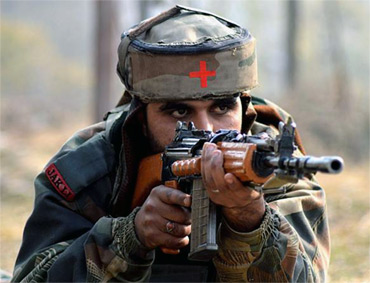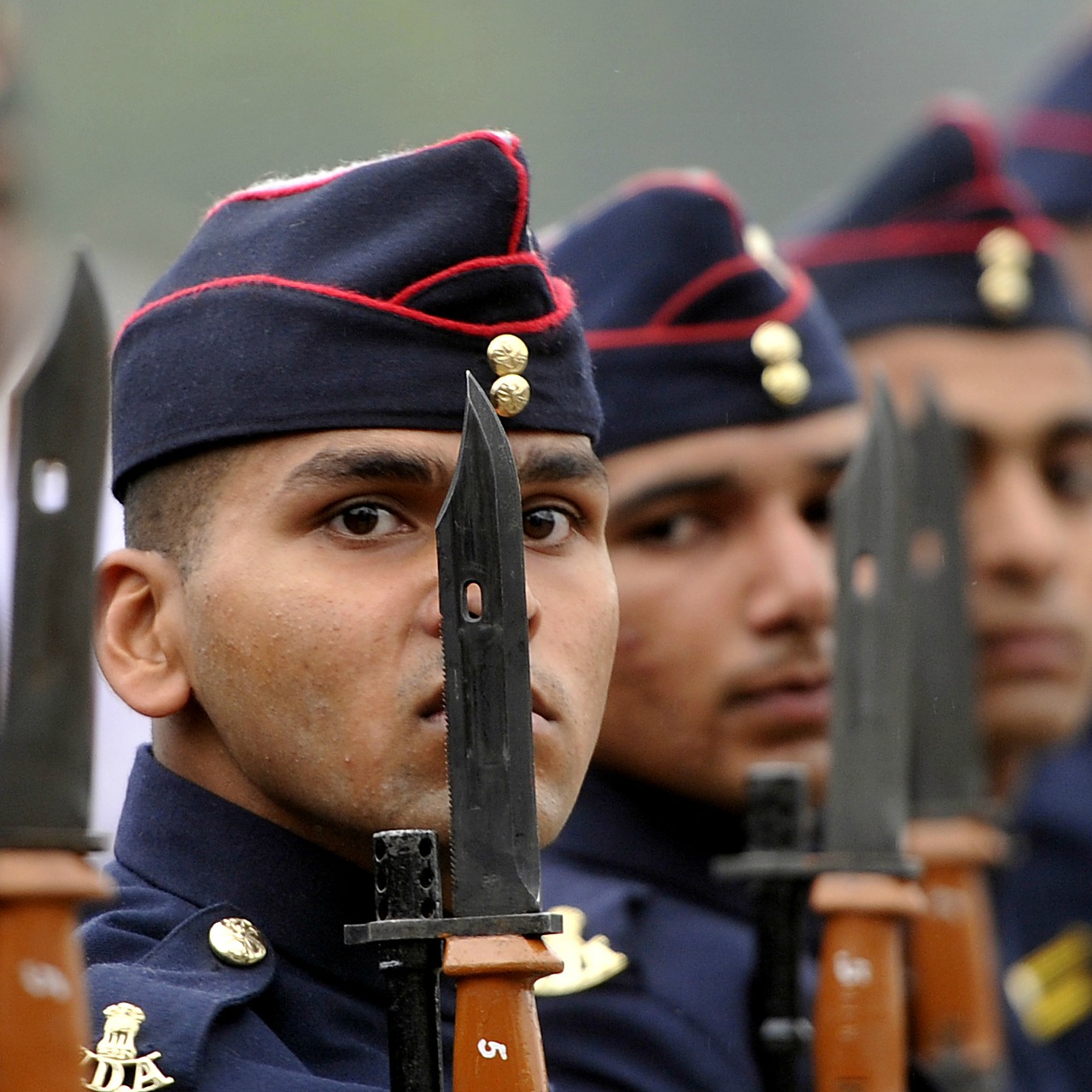Planned since decades, the government finally approved the setting up of the INDU at an estimated cost of 2.95 billion in Haryana in 2010.
On the occasion of the
laying of the foundation stone by Prime Minister Manmohan Singh in 2013, Air
Chief Marshal NAK Browne, the then chairman of the chiefs of staff committee
asserted that “India needs military leaders who can critically analyse,
demonstrate professional acumen and are capable of meeting the threats &
challenges at the tactical ..
------------------------------------------------------------------------------------------------------------------------------------------------------------------
Current Status
The Draft Indian National
Defence University (INDU), 2015 has been placed online for public comments. The
Ministry of Defence website among other things says that the Bill
proposes:
- to
establish a world class fully autonomous institution of national
importance under defence ministry;
- it
will be a teaching and affiliating university for the existing training
institutions of the three Services, which will develop and propagate
higher education in National Security Studies, Defence Management and
Defence Technology and promote policy oriented research on all aspects
relating to national security, both internal and external.
- It
would also cater for open and distance learning program for service
personnel deployed in far flung areas and it will inculcate and promote
coordination and interaction between the Armed Forces and other government
agencies including friendly foreign countries.
------------------------------------------------------------------------------------------------------------
- Considering
that the idea of INDU was first conceived in 1967,
- endorsed
by the K Subhramanyam headed Committee on the National Defence University
(CONDU) in 2002, and
- the
fact that it was to be established in seven years time (by 2008),
passage of the Bill will be a feather in the cap of the
Modi government
 |
------------------------------------------------------------------------------------------------------------
Defence ministry , Military and IDSA regarding INDU
- while
the National Defence College (NDC) under the defence ministry is to be
affiliated to INDU, military wanted the Institute for Defence Studies and
Analyses (IDSA) also functioning under the ministry also be affiliated to
INDU but this was rejected.
------------------------------------------------------------------------------------------------------------------------
Discuss the importance of
Professional Military Education for India.
- There
has always been fear of threats across our porous borders.
- This
makes it very important for our military leaders to think critically,
demonstrate professional acumen and lead the rank and file in dangerous
and difficult situations.
- Therefore,
it becomes increasingly important to invest in professional military
education(PME) in order to groom officers capable of meeting the rigours
of complex politico-military crises and conflicts of the future. The INDU
proposal is therefore a step in the right direction.
 |
What is the existing infrastructure for Professional
Military Education (PME)?
The current infrastructure is as follows. India has tri-services
institutions for Professional Military Education (PME) such as
- National
Defence College (New Delhi),
- College
of Defence Management (Secunderabad) and
- Staff
College (Wellington, Nilgiris District of Tamil Nadu).
Each of them is meant for a particular office profile.
- The
NDC, Delhi is for Brigadiers (and equivalents);
- CDM,
Secunderabad is for Colonels (and equivalents); while
- Staff
College for Majors (and equivalents).
Further, several universities offer master’s and research
programmes in defence and strategic affairs currently.
Is INDU a superimposition
over existing infrastructure?
The proposed INDU is not exactly a superimposition. Intention
is to result in augmentation of the PME capacities and also provide basis for
jointness among the three services.
- Firstly,
despite of existing institutions, there is an academic vacuum in the
country as far as strategic studies are concerned. This university would
fill that vacuum.
- Secondly,
the university is proposed to be a teaching and affiliating university and
existing institutions are supposed to be affiliated to it, thus bringing
oneness in the PME framework in India.
- Thirdly,
it would expand the PME as four new schools would set up under it viz. a
school of national security, a school of defence technology, a school of
defence management and a centre for distance and open learning. It is also
expected to set up academic centres abroad as well.
Is the design of INDU
conducive for augmentation of PME?
It appears to be yet, there are few criticisms.
- Firstly,
it is being criticised because draft bill gives greater control to centre
{included defense ministry and defense establishment} than any other
central university. The Defence Minister will be chancellor of INDU and
head its council, which would be responsible for major policy decisions.
Further, chairman of the chiefs of staff committee will be its
pro-chancellor and preside over the university’s board of governors. This
is in contrast with other central universities where eminent people from
outside the government have greater say; and HRD minister does not serve
as its chancellor. This criticism may be exaggeration because other
civilian universities and a defense education establishment have inherent
differences and such an establishment has direct to do with the nation’s
security; and thus needs greater command of army.
- Secondly,
there is confusion if INDU would follow the UGC set norms, on appointments
of faculty. If not, then, basically it would be obviating its aim of being
an academic institution.
Other shortcomings ?
- The Draft Bill has lengthy elaboration about the top
functionaries of INDU but no elaboration whatsoever on the three proposed
Schools – National
Security Studies, Defence Management and Defence Technology.
- Only three tri-Service institutions (NDC, CDM, DSSC) being
affiliated to INDU gives an impression that INDU is primarily meant for
armed forces, which will
anyway get diluted by the scale of attendance as discussed above. The
bureaucracy may contribute to small number of students but will bag the
lion’s share of running INDU. Whatever the top level military posts in
INDU showcased can easily be manipulated through QR’s and shear obduracy.
Witness the top post of IDSA which was supposedly rotational but is sans a
military head past decades.
- Take
the proposed School for Defence
Technology – why are the Institute of Armament Technology, Centre for
Artificial Intelligence and Robotics or for that matter the DRDO not
affiliated with INDU? Is this denied because it would
expose their inadequacies or is it to give them additional posts through
the backdoor with IITs restricted to contributing students? What about
affiliating IITs, other training establishments? Why is it that neither
the US NDU nor the Chinese NDU have Schools of Defence Technology? With INDU
under defence ministry (don’t mind the fully autonomous bit) who will be
the faculty in the School of Defence Technology – scientists of DRDO to
legitimise what the DRDO is doing?
What is the way ahead?
There are chances that such a university, though founded on a
novel objective, becomes another dysfunctional bureaucratic monolith. Some of
the suggested ways forward are as follows.
- Firstly, to keep its academic nature intact, there has to be a broader academic council with eminent people from outside government.
- Secondly, appointments must be on the basis of competence and integrity and not seniority and sycophancy.
- Thirdly, more focus should be on research.
- Fourthly,
under professional military education, following areas would be focussed
and imparted to the officers-
1.
Leadership
2.
The organization and management of
military forces
3.
Strategy, tactics, and logistics
including Geo-Economics Military history and Geo-Politics
4.
National security policy
5.
The relationship of armed forces and
society; and individual analytical and communication skills
6.
Incorporating Basic Physical Sciences
and Technology and the application of such disciplines as Earth Sciences
especially Geology, Bio Technology, Computer Science, Engineering Sciences, and
Metallurgical Sciences.
Learn from best practices
- The government should move to appoint an academic council, with broader representation than simply bureaucrats and military officers, and house it in a government-sponsored think tank like the Institute for Defence Studies and Analysis.
- It needs to make conscious efforts to learn about best practices in professional military education from other countries.
- This is not just for the benefit of India’s natural security but for the armed forces themselves whose senior officers need wider and better exposure to prepare themselves — and for them to prepare India’s civilians — for the challenges ahead.
- Unless these steps are taken, the INDU will become another costly retirement home, and India’s security will be its collateral damage.

